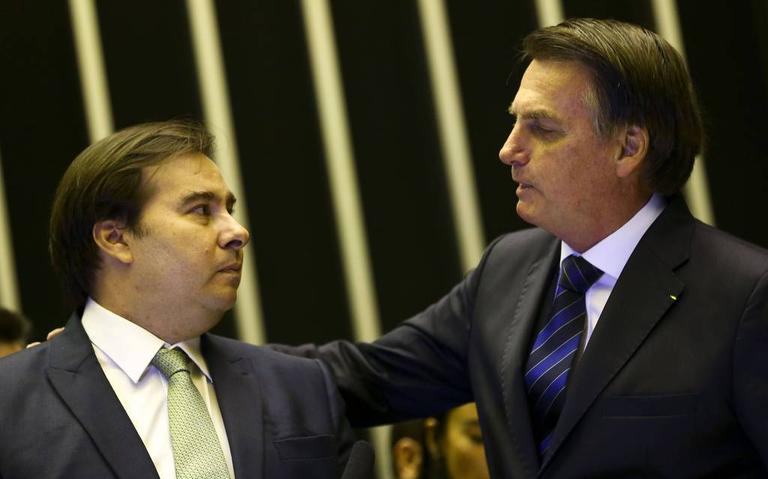RIO DE JANEIRO, BRAZIL – Members of the Centrão party bloc are staking their bets on supporting President Jair Bolsonaro against the economic team’s resistance to extending the transfer of funds to municipalities – a measure that is part of the agreement for the parties to accept the deferral of municipal elections.

The evaluation is that Bolsonaro would be more responsive to appeals from parties like PP (Progressives) and Republicanos (Republicans) than to the Minister of Economy Paulo Guedes’ plan to use the resources that have not yet been transferred to cover other expenses, such as the emergency aid extension for casual workers.
The deadlock with the economic team involves an agreement, drafted by Chamber President Rodrigo Maia, to extend transfers of funds to municipalities.
The Federal Government’s transfer obligation is provided by a Provisional Measure (MP 938) guaranteeing that, between March and June, municipalities and state governments should not suffer losses in the revenue-sharing programs called FPM (Municipal Participation Fund) and FPE (State Participation Fund), despite the sharp drop in federal revenues.
The MP reserved up to R$16 billion (US$3 billion) to sustain the FPM and FPE transfers during these four months.
With the first three installments, about R$6 billion were used. With the final installment, a surplus of about R$5 billion is expected.
Thus, legislators argue that there would be no additional cost to extend this measure until the end of the year, given that the original amount of the funds would be enough to serve the states and municipalities beyond the four month period set by the MP.
The extension was among the counterparts offered to mayors seeking re-election. They pressured Centrão leaders to uphold the TSE (Superior Electoral Court) original calendar with elections in October, as a means of minimizing their opponents’ chances in the electoral dispute.
Federal Deputy Marcos Pereira (Republicans) had advocated on Wednesday, June 24th, that the elections be maintained on October 4th so that “the reforms that Brazil needs can proceed as quickly as possible”.
“By deferring the elections, it will inevitably take Congress longer to tackle mainly economic issues,” he wrote on social media.
On Monday, June 29th, Pereira had voiced a completely opposing position on the same social media. “The beauty of democracy is our ability to persuade and be persuaded by dialogue,” he wrote. “I was persuaded that deferring the elections until November is the best decision to make. We are building the required consensus,” he said.
The PEC (proposed amendment to the Constitution) passed by the Senate defers the first and second rounds of the municipal polls to November 15th and 29th – the official dates are October 4th and 25th.
With the municipal funds bolstered by the Federal Government’s transfers, the current mayors, who have control of the public machinery, have a better chance of winning new mandates.
Aware of the problem, members of the Ministry of Economy expressed opposition to the agreement. They believe that the money that was not transferred to FPM and FPE should be used to help pay for the two new installments of the R$600 (US$100) emergency aid.
Although the cost of each aid installment is much higher (R$51 billion per month), the Ministry team argues that, in the Covid-19 crisis, public resources should be used efficiently.
The Guedes-led team also considers that the R$120 billion rescue plan for states and municipalities, in force since May, is enough for local governments to tackle the economic and health crisis.
To date, MP 938 has not been been put to a vote in either the Chamber or the Senate, and will expire on July 30th if not voted. The economic area’s plan is for the text to expire as soon as the June transfers are made.
If voted and passed in both Houses, the measure can still be vetoed by Bolsonaro. The final word, however, rests with Congress, which in a joint session can override the Presidential veto if supported by at least half of the 513 deputies and 81 senators.
Guedes’ resistance has led to new connections to try to overcome the deadlock.
Maia’s initial plan was to vote on the PEC on Tuesday, June 30th. But to gain more negotiating time, the proposal is now expected to be put to the vote on Wednesday, July 1st – if there is no call in Congress to consider government vetoes.
Part of the agreement tailored by Maia to attract the Centrão also involves the approval of a bill, in the Senate, which would reinstate free political party broadcasts. The negotiation was conducted jointly with Senate President Davi Alcolumbre.
Partisan advertising on radio and television, outside the pre-election period, was banned in the 2017 electoral mini-reform.
The Senate text proposes that national broadcasts be aired on Tuesdays, Thursdays, and Saturdays, and state broadcasts on Mondays, Wednesdays, and Fridays.
With both measures, Maia intends to raise the necessary support to approve the PEC. To pass the proposal, the votes of at least 308 deputies in two shifts are required.
The Centrão is formed by parties such as PP (Progessives), PL (Liberal Party), and Republicanos (Republicans), which, together with a few smaller parties, represent a majority of seats in the Chamber and have offered support to the Bolsonaro government in exchange for patronage positions.
The group is now against deferring the municipal elections after Maia and the president of the TSE (Superior Electoral Court), Justice Luís Roberto Barroso, ruled out the possibility of extending existing mandates into next year. Leaders of these parties are in control of many of city halls and, with the current mayors, they believe a shorter electoral campaign would raise their chances of reelection.
The actions of the Chamber President helped to reduce the opposition of these legislators.
Some resistance remains. The PL, which has 41 deputies, maintains itself in favor of the elections on October 4th. However, there are disagreements within the party, and one wing advocates deferring the elections, as Maia wants.
Source: Folhapress

